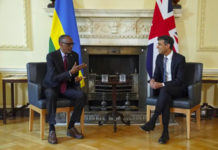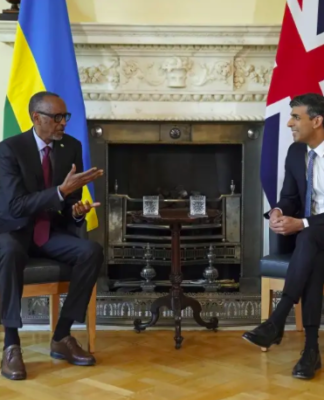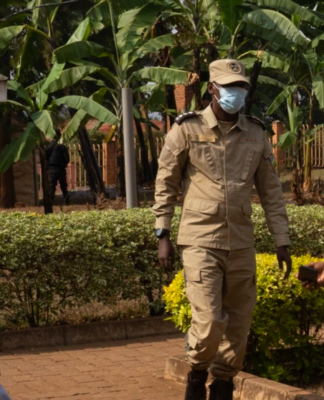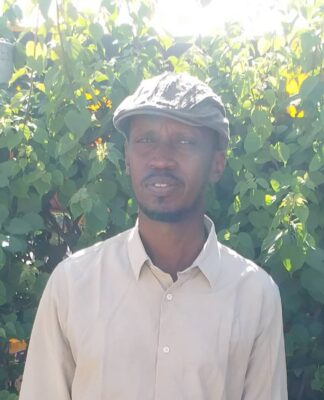By David Himbara
Kagame’s agenda for igniting Medtech, Fintech, Edtech, Agritech, and Cleantech in Rwanda is mission impossible. Two companies with roots outside Rwanda – MAX and Veibeg – are the redeeming ventures.
General Paul Kagame’s delusions of transforming Rwanda into a knowledge-based economy led to the establishment of Rwanda Innovation Fund (RIF) in 2018. RIF was to be the vehicle for igniting Medtech, Fintech, Edtech, Agritech, and Cleantech. RIF’s broader task was building a digital ecosystem in Rwanda. It came as no surprise that RIF was mission impossible. First, Rwanda did not have a fund manager to implement RIF’s investing strategy and to manage its portfolio startup activities. Angaza capital, the RIF manager was sourced from outside Rwanda. Second, in five years since its inception, RIF could not find a single Rwanda tech entrepreneur that could absorb a US$500,000 startup capital. The two RIF-supported tech startups with roots outside, namely, MAX and Viebeg are the saving grace.

Birth of the Rwanda Innovation Fund and how Angaza Capital Became the Fund Manager
General Paul Kagame is relentless in marketing his false brand of “the digital president” building an eConomy in Rwanda. He proclaims that Rwanda’s digital economy is focused on artificial intelligence, technology and data governance frameworks. The Rwanda Innovation Fund was established as the primary vehicle to fund digital startups while building the broader digital ecosystem in the country. The first obstacle was the fact that there were no qualified fund managers with global outreach in Rwanda. Enter Angaza Capital recruited from outside Rwanda in 2018.
Finding and Funding Digital Startups in Rwanda Proved to Be Mission Impossible
The initial RIF funding of US$68.6 was to come from three sources – a US$30 million AfDB loan; US$30 million from private investors; and a US$8.6 million government counterpart funding. The fund manager would increase RIF to US$100 million and subsequently reach a US$300 million mark propelled by follow-on investments. Things didn’t go according to plan, however. The AfDB’s US$30 million loan is the only funding that materialized. But even that startup capital remains mostly unused. There are simply no investable digital entrepreneurs in Rwanda as shown in this diagram.

The 2022 AfDB’s Implementation Progress and Results Report indicates the following:
- Number of direct and indirect jobs created: 1.40%
- Number of entrepreneurs trained: 0.00%
- Number of businesses supported: 0.00%
- Number of women businesses supported: 0.00%
- Number of invitee companies supported: 5.00%
- Number of incubators and accelerators: 0.00%.
The conceiver of RIF, read General Kagame, forgot or ignored the fact that digital businesses are built by digital entrepreneurs who pursue business ventures built exclusively on digital platforms. Put in another way, digital entrepreneurs use mass digitization to build businesses in the online space. Rwanda has not produced even one promising digital entrepreneur in five years. The AfDB diplomatically describes the Rwandan reality in the following terms:
“There is a limited deal flow in the country at growth stage maturity who can absorb more than $500,000. Hence only two investee companies since inception, Veibeg and MAX.”
Translated into plain English, there are no digital entrepreneurs in Kagame’s Rwanda – period.
MAX and Veibeg Medical in which RIF Is Invested Are a Silver Lining

MAX is a Nigerian ride-hailing and assembler of electric vehicles startup founded by two tech entrepreneurs, Adetayo Bamiduro and Chinedu Azodoh. With support from the UK-funded Manufacturing Africa programme, MAX raised $31 million in 2021 to expand its electric vehicle assembly plant. The Rwanda Innovation Fund was among MAX investors that included several UK-linked financiers such as Novastar and Shell Foundation. MAX currently operates in Nigeria and Ghana but is poised to spread its mobility platform and EV vehicles beyond Nigeria and Ghana. Armed with partnerships of vehicle producers such as Yamaha Corporation, MAX is set to raise US$100 million for expanding its market share in electric vehicles across Africa.

Veibeg was founded and is managed by an Austrian tech entrepreneur, Tobias Reiter, and his Kenyan tech friend, Alex Musyoka. Supported by several investors and accelerators that include RIF, Veibeg Medical became a groundbreaking data-driven medical supply company in three years. In the words of AfDB,
“Veibeg has impacted over two million people and has contributed to reducing factory the cost of medical supplies…by between 20 to 40% of market price in barely three years of its existence.”
Viebeg is doing a thriving business in four countries – Rwanda, Kenya, Burundi and DR Congo.
African Development Bank’s Rescue Plan for the Rwanda Innovation Fund

The African Development Bank’s rescue plan aims to fix three major flaws in RIF. First, an additional fund manager has to be recruited to share the workload with Angaza Capital. Second, the Kagame government has to remove the institutional confusion that undermines the project. The finance ministry is RIF’s implementing agency but the Project Implementation Unit (PIU) reports to Rwanda Development Board. Third, the government has to seek approval for hiring another fund manager from Angaza Capital because it listed on the loan agreement. The AfDF’s own words are as follows:
“1) Recruitment of a second fund manager…to focus on the early stage startups and raise outstanding investment fund of US$15 Million. 2) Revision of the Project Implementation Structure: The project is currently implemented by the Ministry of Finance. However, the PIU team and operations is managed under the RDB…3) The government of Rwanda must obtain a no objection from Angaza before it can recruit a second FM to the project. Angaza was listed in the Loan Agreement.”
Rwanda’s Auditor General gave the government a similar advice after noticing that as February 2023, out of US$917,500 RIF’s investments, only US$160,000 (17%) was invested in Rwandan companies. Hence his advice that “there is an urgent need for the Ministry of Finance and Rwanda Development Board to review the project implementation strategies.”
Over to General Paul Kagame. Stay tuned.





























































